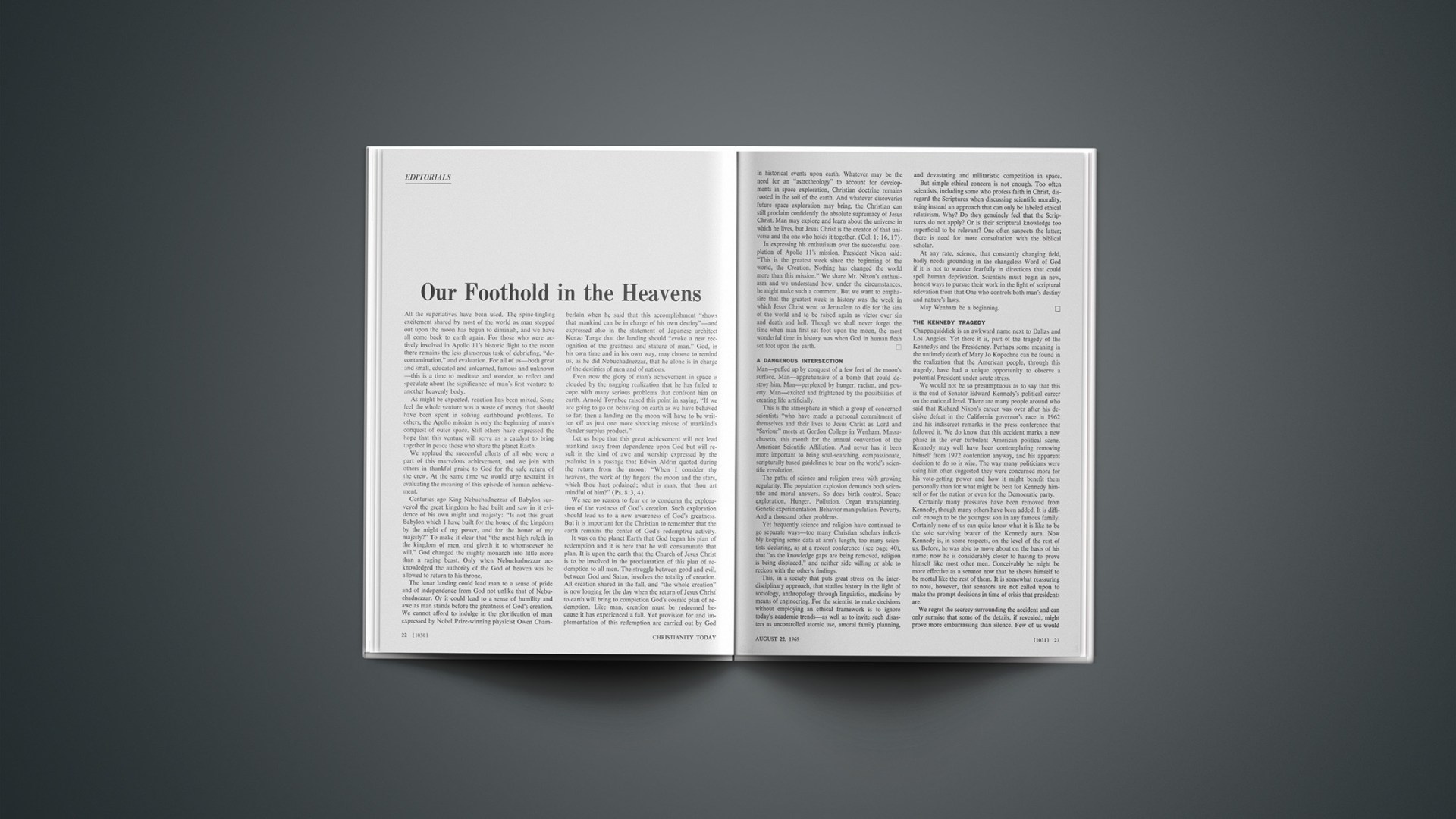Man—puffed up by conquest of a few feet of the moon’s surface. Man—apprehensive of a bomb that could destroy him. Man—perplexed by hunger, racism, and poverty. Man—excited and frightened by the possibilities of creating life artificially.
This is the atmosphere in which a group of concerned scientists “who have made a personal commitment of themselves and their lives to Jesus Christ as Lord and “Saviour” meets at Gordon College in Wenham, Massachusetts, this month for the annual convention of the American Scientific Affiliation. And never has it been more important to bring soul-searching, compassionate, scripturally based guidelines to bear on the world’s scientific revolution.
The paths of science and religion cross with growing regularity. The population explosion demands both scientific and moral answers. So does birth control. Space exploration. Hunger. Pollution. Organ transplanting. Genetic experimentation. Behavior manipulation. Poverty. And a thousand other problems.
Yet frequently science and religion have continued to go separate ways—too many Christian scholars inflexibly keeping sense data at arm’s length, too many scientists declaring, as at a recent conference (see page 40), that “as the knowledge gaps are being removed, religion is being displaced,” and neither side willing or able to reckon with the other’s findings.
This, in a society that puts great stress on the inter-disciplinary approach, that studies history in the light of sociology, anthropology through linguistics, medicine by means of engineering. For the scientist to make decisions without employing an ethical framework is to ignore today’s academic trends—as well as to invite such disasters as uncontrolled atomic use, amoral family planning, and devastating and militaristic competition in space.
But simple ethical concern is not enough. Too often scientists, including some who profess faith in Christ, disregard the Scriptures when discussing scientific morality, using instead an approach that can only be labeled ethical relativism. Why? Do they genuinely feel that the Scriptures do not apply? Or is their scriptural knowledge too superficial to be relevant? One often suspects the latter; there is need for more consultation with the biblical scholar.
At any rate, science, that constantly changing field, badly needs grounding in the changeless Word of God if it is not to wander fearfully in directions that could spell human deprivation. Scientists must begin in new, honest ways to pursue their work in the light of scriptural relevation from that One who controls both man’s destiny and nature’s laws.
May Wenham be a beginning.










